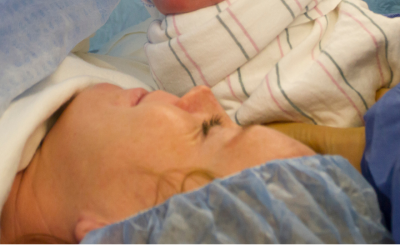
The placenta and preeclampsia: Villain or victim?
The placenta and preeclampsia: Villain or victim?
For many years, researchers have argued that preeclampsia is a clinical syndrome of the placenta resulting from an immune response to the foreign organ. The theory is that preeclampsia typically presents with symptoms affecting the blood vessels, such as hypertension, proteinuria, and organ dysfunction, but is actually the result of earlier inflammation, endothelial damage (damage that affects the interior lining of the blood vessels), and reduced blood flow to vital organs.
This research article asks the question: is the placenta the reason preeclampsia occurs, or is it just one more organ affected by an underlying cardiovascular disease? The authors make the argument that preeclampsia could be caused by an underlying cardiovascular disease which is not yet fully understood, with the placental issues only being a secondary effect (along with other organs). Proposing that preeclampsia starts with cardiovascular issues could then influence how preeclampsia screening, diagnostic and prevention strategies would be managed by a woman’s care providers. Given the annual impact the disease has on pregnancies in the US and globally, this viewpoint could help increase focus on prevention strategies.
Take home message: A clear understanding and acceptance of the role of the cardiovascular system in preeclampsia is needed.
Link: https://www.ajog.org/article/S0002-9378(20)31198-4/fulltext
About Research Roundup
Each quarter, our team of researchers reviews the most current studies related to hypertensive disorders of pregnancy and selects those studies they feel will be of greatest interest to our community to summarize.
Special thanks to our volunteer research team, who under the leadership of Dr. Elizabeth Sutton, make Research Roundup possible: Alisse Hauspurg, MD Felicia LeMoine, MD Jenny Sones, PhD, DVM, and Robin Trupp, PhD, RN.
Related Articles

Recent findings in preeclampsia research have shown that preeclampsia likely has at least two variants – an early onset and a late onset variant. Early onset is typically defined as before 34 we...

Preeclampsia is a pregnancy complication marked by new-onset high blood pressure and signs of stress on organs such as the kidneys, liver, and brain. While much attention is often given to preterm dis...

Preeclampsia is a serious problem that can happen during pregnancy. It often affects the brain and can cause headaches, vision problems, strong reflexes, and seizures (called eclampsia). In this study...

Pregnancy offers a unique window into a woman’s future heart and cardiovascular health. Conditions such as hypertensive disorders of pregnancy (HDP) which include gestational hypertension, preec...

Heart disease, also called cardiovascular disease (CVD), is becoming more common in young women across the United States. Hypertensive disorders of pregnancy (HDP) is a group of conditions that includ...

